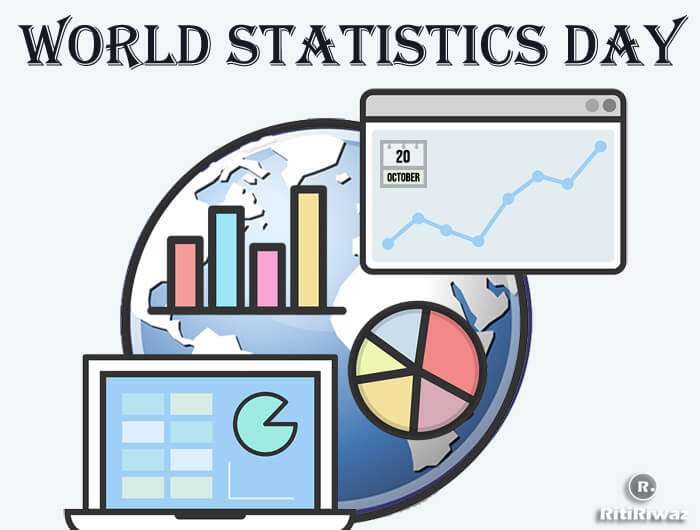World Statistics Day

World Statistics Day is celebrated across the globe on 20 October since 2010 and is celebrated after every five years. The celebration is to highlights the importance of statistics in development, especially sustainable development, and indicators measuring a country´s progress. Previously this day was observed three times 2010, 2015, and 2020 the next World Statistics Day will be celebrated in 2025.
The day will acknowledge the service provided by the global statistical system at the national and international level and hope to help strengthen the awareness and trust of the public in official statistics. It serves as an advocacy tool to further support the work of statisticians across different settings, cultures, and domains.
The third World Statistics Day was celebrated around the globe on 20 October 2020 with the theme “Connecting the world with data we can trust”. For 2024, the theme is “Use of Data for Decision Making.”
Statistics as a science of learning provides an essential service, through making available data for decision-making in the face of uncertainty. The main goal of celebrating this day is pointing out the importance of statistical data in modern society and the significance of their reliability, as these data present the basis for decision-making – both at global and national levels.
In the world of work, sound data collection is vital for effective policy-making. Without reliable statistics, policy-makers are working in the dark. Similarly, employer and worker organizations and other stakeholders need good statistics to back their efforts to influence policy directions.
History of World Statistics Day
Designated by the United Nations General Assembly, World Statistics Day was internationally marked for the first time on 20 October 2010, highlights the importance of statistics in shaping our societies.
The sustainable development goals form the blueprint to achieve a better and more sustainable future for all. They address global challenges, including poverty, inequality, climate change, environmental degradation, peace, and justice. The implementation and monitoring of that historic development agenda call for the production and sharing of reliable, comparable, statistical data at the global level. The fact that effective public policies cannot exist without robust statistical data poses an unprecedented challenge for the entire world.
In this period of the Novel Coronavirus global pandemic, COVID-19, statistics are required to track the status of the pandemic, and its economic and social impact, reinforcing its value to society. Our world today is much more connected than it has ever been in its history. Be it economically, socially, or even culturally, every nation is interlinked in one way or the other. The extent of this global connectivity and the importance of statistics was further highlighted recently by the COVID-19 pandemic.
A virus that started in Wuhan, a City in faraway China, was able to spread globally within 3 months, shutting down the economies of almost every country. With this continuous interconnectivity and the associated important role of reliable data and statistics in this development, it is therefore appropriate that we highlight and bring it to the fore.
Up-to-date, reliable, timely, and trusted data are necessary to understand the changing world in which we live. Statistics are critical for evidence-based policymaking across all sectors and all societies,
regardless of their cultural and historical backgrounds or level of economic growth and development.
Activities and celebrations worldwide on World Statistics Day highlight the role of sound statistical methods and improved data sources in the development of policies that impact millions of people.
Suggested Read: Important Days In October






